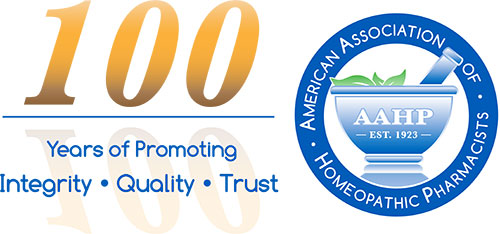Adulterants in Your Botanical Source Materials – How Do You Know?

By Eric L. Foxman, R.Ph
Many commercially available botanical products have been adulterated prior to their introduction to the market. This is a problem that has only recently come under a glaring spotlight because of the actions of the New York Attorney General’s office. While the A.G.’s testing and conclusion proved to be of flawed methodology, a problem has been exposed that can affect the starting material for many homeopathic drug products.
To address the underlying concerns of hidden adulterants, the American Botanical Council (ABC), teamed up with the American Herbal Pharmacopoeia (AHP), and the University of Mississippi’s National Center for Natural Products Research (NCNPR). The outcome of their efforts is an ambitious program to provide scientifically valid information and testing methodologies to reveal the presence of adulterants in popular botanical materials. Their written documents should be required reading for every quality assurance department leader in the homeopathic industry.
To date, the ABC-AHP-NCNPR Botanical Adulterants Program has published a number of adulteration reports covering Ginkgo, Black Cohosh, Bilberry, Grapefruit Seed, and Skullcap. In addition, the program has published laboratory guidance documents for Bilberry, Black Cohosh, and Skullcap. These documents are in addition to, and compliment, the monographs of the American Herbal Pharmacopeia.
Further, the program provides readers with information regarding peer-reviewed papers, which detail adulteration in commercial products or which describe new analytical approaches that can be used to authenticate botanical materials. The program also publishes “Regulatory Alerts.” One recent “Alert” discusses the U.K. recall of Hypericum perforatum due to the presence of pyrrolizidine alkaloids (PA) at levels above those in the European Committee on Herbal Medicinal Products recommendations. While this instance appears to have been due to accidental contamination of St. John’s wort with other PA-containing plants during harvest, the recall has potentially far-reaching consequences for the availability of Hypericum perforatum starting material worldwide.
The focus of the program is on the most popular botanical substances used by the dietary supplement industry. These are not necessarily the same botanical starting materials that are of primary importance to the homeopathic industry. However, the information is still of great value, for it permits our industry members to be aware of the potential for unexpected adulteration as well as testing methods that are becoming increasingly available to detect this problem and inform our industry. The information is available for free and only requires online registration for access.
The ABC-AHP-NCNPR Botanical Adulterants Program is a consortium of independent nonprofit organizations whose mission relates to education, scientific research, and quality of botanical dietary ingredients and related plant-derived materials. The consortium is headed by three nonprofit groups dealing with education and research on medicinal herbs and other beneficial plants: the American Botanical Council, the American Herbal Pharmacopoeia, and the National Center for Natural Products Research at the University of Mississippi. The program is underwritten or endorsed by more than 130 natural products industry companies, independent analytical laboratories, contract research organizations, nonprofit and professional organizations, trade associations, accredited institutions of education in natural medicine, law firms, and media companies that are involved in the production, supply, manufacture, distribution, marketing, analysis, research, and/or education of herbal dietary ingredients and supplements, in the United States and internationally. All publications of the program are available for free on its homepage including the “Botanical Adulterants Monitor,” an e-newsletter that conveys the program’s news, regulatory updates, and recent scientific publications related to adulteration, contamination, identity, and authenticity of botanical raw materials, extracts, and essential oils. Companies, organizations, foundations, and/or individuals interested in supporting this program are invited to contact Ms. Denise Meikel, ABC development director, at 512-926-4900, ext. 120, or by email.
I recommend all members of the homeopathic industry to avail themselves of this critically important information resource. And I strongly urge all members to make a donation to this program; even token amounts are appreciated as they indicate the program’s work is valuable and helpful to a wide and diverse audience.
